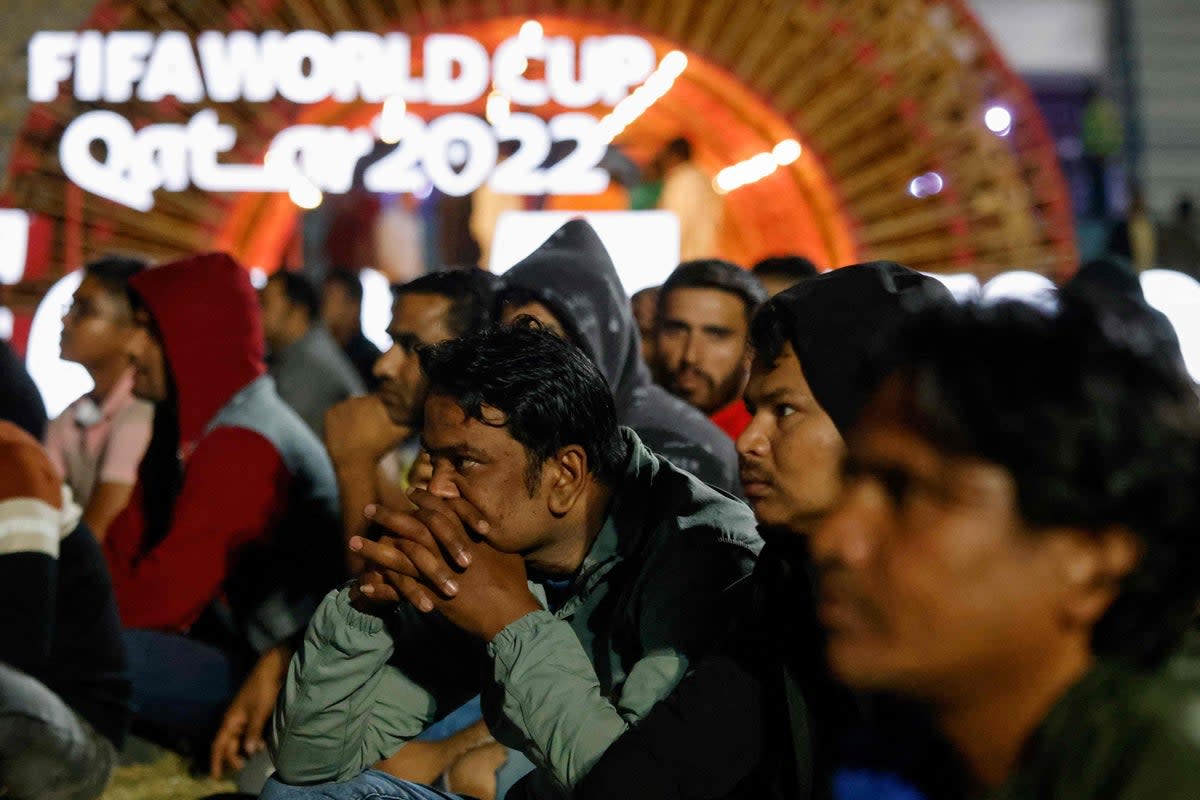Qatar official admits for first time hundreds of migrant workers died building World Cup 2022

A leading Qatari official has admitted for the first time that hundreds of migrant workers died building the 2022 World Cup.
Qatar has been defensive in the face of accusations over thousands of unexplained deaths among its large migrant worker community, who were brought to the Gulf state mostly from impoverished parts of south Asia over the past 12 years to build lavish stadiums and infrastructure for the four-week tournament.
The previous line insisted by Qatar officials was that 40 workers had died building the World Cup, 37 of which were “non-work incidents” meaning only three supposedly occurred as a result of poor working conditions.
However, in an interview with Piers Morgan, Hassan al-Thawadi, the secretary-general of Qatar‘s Supreme Committee for Delivery and Legacy, put the number of worker deaths for the tournament “between 400 and 500” for the first time, a drastically higher figure than any other previously offered by Doha.
The comment threatened to reinvigorate criticism by human rights groups over what the toll of hosting the Middle East's first World Cup for the migrant labour that built around £200bn worth of stadiums, metro lines and new infrastructure needed for the tournament.
The Supreme Committee and Qatar's government did not immediately respond to request for comment Tuesday.
In the interview, portions of which Morgan posted online, he asks al-Thawadi: "What is the honest, realistic total do you think of migrant workers who died from – as a result of work they’re doing for the World Cup in totality?”
“The estimate is around 400, between 400 and 500," al-Thawadi responds. "I don’t have the exact number. That’s something that’s been discussed.”
Since Fifa awarded the tournament to Qatar in 2010, the country has taken some steps to overhaul the country’s employment practices. That includes eliminating its so-called kafala employment system, which tied workers to their employers, who had say over whether they could leave their jobs or even the country.
Qatar also has adopted a minimum monthly wage of 1,000 Qatari riyals (£250) for workers and required food and housing allowances for employees not receiving those benefits directly from their employers. It also has updated its worker safety rules to prevent deaths.
“One death is a death too many. Plain and simple,” al-Thawadi adds in the interview.
Activists have called on Doha to do more, particularly when it comes to ensuring workers receive their salaries on time and are protected from abusive employers.
Al-Thawadi's comment also renews questions on the veracity of both government and private business reporting on worker injuries and deaths across the Gulf Arab states, whose skyscrapers have been built by laborers from South Asia nations like India, Pakistan and Sri Lanka.
Mustafa Qadri, the executive director of Equidem Research, a labor consultancy that has published reports on the toll of the construction on migrant laborers, said he was surprised by al-Thawadi's remark.
“For him now to come and say there is hundreds, it’s shocking,” he told The Associated Press. “They have no idea what’s going on.”
Additional reporting by AP


